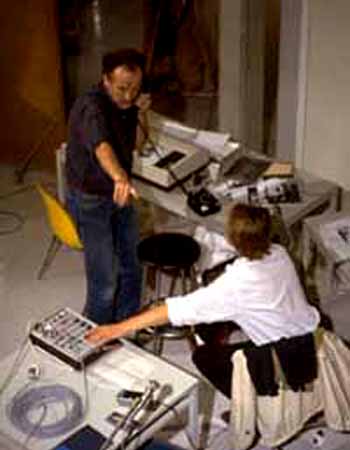
From the home page of Virtual Street Corners, a public art project by John Ewing with Boston Cyberarts & the Knight Foundation
This project looks great, and I’m excited to see it, but I do hope that by launch time there is at least some acknowledgment of Kit Galloway and Sherrie Rabinowitz’s pioneering Hole In Space (1980) project between LA and New York, which informed their LA Olympics original Electronic Cafe (1984), which had some of the same explicit goals of creating virtual discourse and sociability between geographically divided neighborhoods.
Maybe I’m wrong to want this acknowledgment. I’m ambivalent about artists having to be art historians. It’s not their job, even though most I know are incredibly knowledgeable about the history of their practice. I also don’t believe that “first” is synonymous with “better” or that no one else should use scrolling, LED text because Jenny Holzer has. But Kit and Sherrie have 30 years of remarkable experience thinking about and putting into practice some of the same goals and challenges as Virtual Street Corners, which I hope the creators have learned from.



